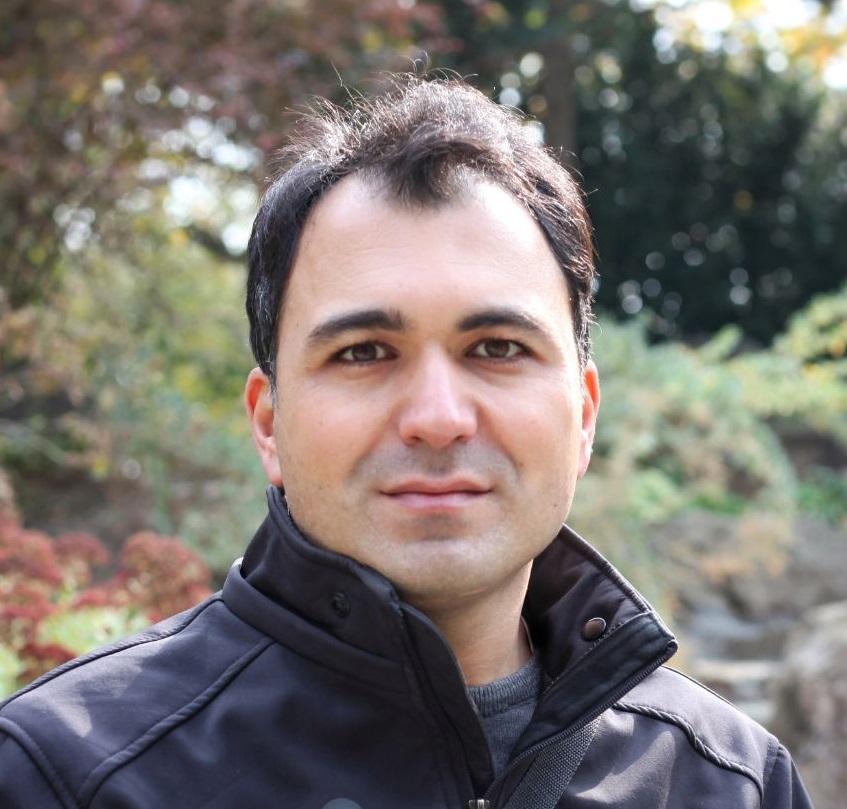Saleh Roshani is a Centre for BOLD Cities' visiting researcher from January 2024 until July 2025. At the Centre, he researches the urban data revolution. Read the interview below to learn more about Saleh's academic background and research interests.

Could you tell me more about your academic background and expertise?
I earned a bachelor’s in urbanism at the University of Tehran and a master’s in urban and regional planning at Tarbiat Modares University. Then I started my career as an urban planner at multiple urban consulting firms and then at the municipality of Tehran. I contributed to plans for multiple cities throughout the country from comprehensive to neighborhood plans.
During my job, I noticed a significant gap between knowledge and practice in urban planning. The academic concepts and methods I learned often didn't translate directly to the daily challenges I faced as a planner. This realization was the main starting point for my PhD project at Shahid Beheshti University. My research was about knowledge development within urban planning. Its focus was on the crucial role of context in the knowledge of planning and development. I explored the formation and diffusion of urban planning concepts and ideas, particularly on global north-south relations. Urban planning ideas have been formed mostly in some Western countries based on their experience, conditions, and institutional structures, and spread around the world. Understanding how these ideas are transferred, translated, and adapted can help to address better global concerns such as climate change and urban poverty. To have a deeper narrative, I investigated how Iranian urban planners adapted knowledge to address specific problems within their cities.
During my job, I noticed a significant gap between knowledge and practice in urban planning. The academic concepts and methods I learned often didn't translate directly to the daily challenges I faced as a planner.
How did you get involved with the Centre for BOLD Cities and what does it mean to you?
Out of a broader interest in the role of data and digitalisation within governments, I took a course on data analytics and its implications for societies. After finishing this course, I started looking for opportunities to use data analysis to research how new tools are changing the role of urban planners and how they deal with problems in cities. I felt that the Centre for BOLD Cities was the best place to pursue this ambition, due to its focus on the relationship between people and the government and the role data plays in that relationship.
Why do you think an interdisciplinary approach is important?
In my field of expertise in urban planning challenges like sustainable development, transportation networks, and affordable housing all have social, economic, and environmental aspects that need to be considered at the same time. You cannot go without working together and learning from each other to tackle them. An interdisciplinary approach goes beyond just acknowledging these various aspects. It fosters collaboration between experts from different fields to develop more comprehensive, innovative, and inclusive solutions.
An interdisciplinary approach goes beyond just acknowledging these various aspects. It fosters collaboration between experts from different fields to develop more comprehensive, innovative, and inclusive solutions.
What impact do you hope to have with your research?
I hope to be able to raise awareness about the importance of context when tackling urban challenges. In academia very often ‘fashionable’ ideas and concepts are followed. However, many real everyday urban challenges across the world, influenced by different legal and political systems, are often different from these trendy ideas. Therefore, it is important to look beyond popular ideas, consider different contexts and deeply understand them. Now, we share more common global concerns than ever before. However, the responses to global issues have to be applied locally. A one-sided emphasis on "good practices" can lead to frustration among experts and the public due to contextual differences.
Do you have a book/podcast/film which inspires you that you would like to share with us?
I would like to recommend a book: Braiding Sweetgrass by Robin Wall Kimmerer. It is about the relationship between humans and nature. I found it very inspiring to learn more about human-nature relationships with a focus on plants and indigenous knowledge of native Americans. A close relationship with nature can shape our understanding of the complexities of natural systems and their great impact on our lives and the settlements we live in. Also, documentaries like "Planet Earth" have opened our eyes to the wonders of our planet, while highlighting the drastic changes it is undergoing due to human activities. Many species are adapting to these shifting conditions, finding new ways to survive, while others are tragically disappearing. Understanding these ongoing processes is crucial for developing innovative approaches and ensuring the resilience of our cities.
